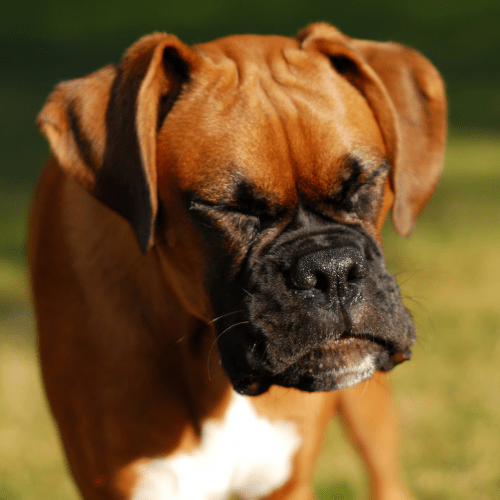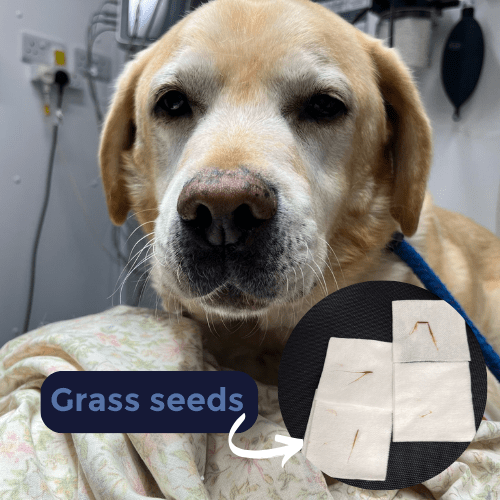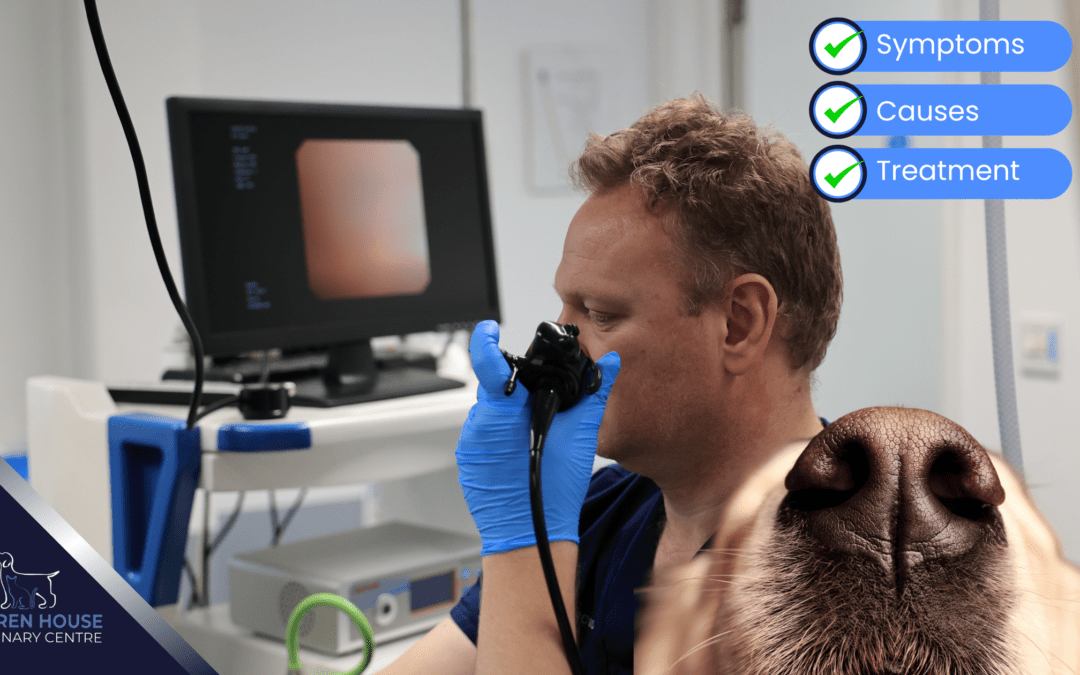We are committed to providing your pets with the most advanced diagnostic care available. One of the diagnostic services we offer is veterinary rhinoscopy—a minimally invasive procedure designed to diagnose and treat conditions affecting your pet’s nasal passages and sinuses.
What is an Rhinoscopy?
Rhinoscopy is a diagnostic procedure that allows veterinarians to examine the inside of your pet’s nasal passages and sinuses. This is done using a rhinoscope—a thin, flexible tube equipped with a camera and light. Rhinoscopy provides a clear, real-time view of the nasal structures, making it an invaluable tool for diagnosing and treating a variety of nasal and sinus conditions.
Why is rhinoscopy performed?
Rhinoscopy is recommended for pets experiencing chronic or unexplained nasal symptoms, including:
- Nasal discharge: persistent or recurrent discharge from the nose, which may be clear, cloudy, or bloody.
- Sneezing: frequent or severe sneezing that does not improve with standard treatments.
- Nasal congestion: difficulty breathing through the nose, often accompanied by snoring or noisy breathing.
- Epistaxis (nosebleeds): unexplained bleeding from the nose.
- Facial Swelling: swelling around the nose or face, which may indicate a mass or infection.
- Unexplained Odour: foul-smelling breath or nasal discharge that persists over time.
- Nasal Masses or Foreign Bodies: suspected growths or objects lodged in the nasal passages.
Common conditions diagnosed with bronchoscopy:

Chronic Rhinitis
Inflammation of the nasal passages that can cause persistent nasal discharge and congestion.
Nasal Tumours
Identification and biopsy of abnormal growths within the nasal passages or sinuses.


Foreign Bodies
Detection and removal of objects that may have become lodged in the nose, such as grass awns or other debris.
Nasal Polyps
Benign growths that can obstruct the nasal passages and cause breathing difficulties.

Fungal infections
Diagnosis of fungal infections, such as aspergillosis, which can affect the nasal passages and sinuses.
Trauma
Assessment of damage to the nasal structures caused by injury.

Benefits of rhinoscopy:
- Minimally Invasive: Allows for a thorough examination of the nasal passages with minimal discomfort and quick recovery.
- Accurate Diagnosis: Provides a clear view of the nasal and sinus structures, enabling precise diagnosis and targeted treatment.
- Early Detection: Early diagnosis of nasal conditions can lead to more effective treatment and better outcomes.
- Effective Treatment: Rhinoscopy allows for both diagnosis and treatment in a single procedure, addressing the underlying causes of nasal symptoms.
Why choose Warren House Vets?
We are dedicated to providing your pets with the highest standard of care through the use of advanced diagnostic techniques. Our experienced veterinary team is skilled in performing rhinoscopy, ensuring that your pet receives accurate diagnoses and effective treatments in a compassionate and caring environment.
Schedule a Consultation Today!
If your pet is experiencing nasal or sinus issues, timely diagnosis and treatment are essential for their comfort and well-being. Contact us today to schedule a consultation or to learn more about our rhinoscopy services.
Thank you for reading, until next time…

